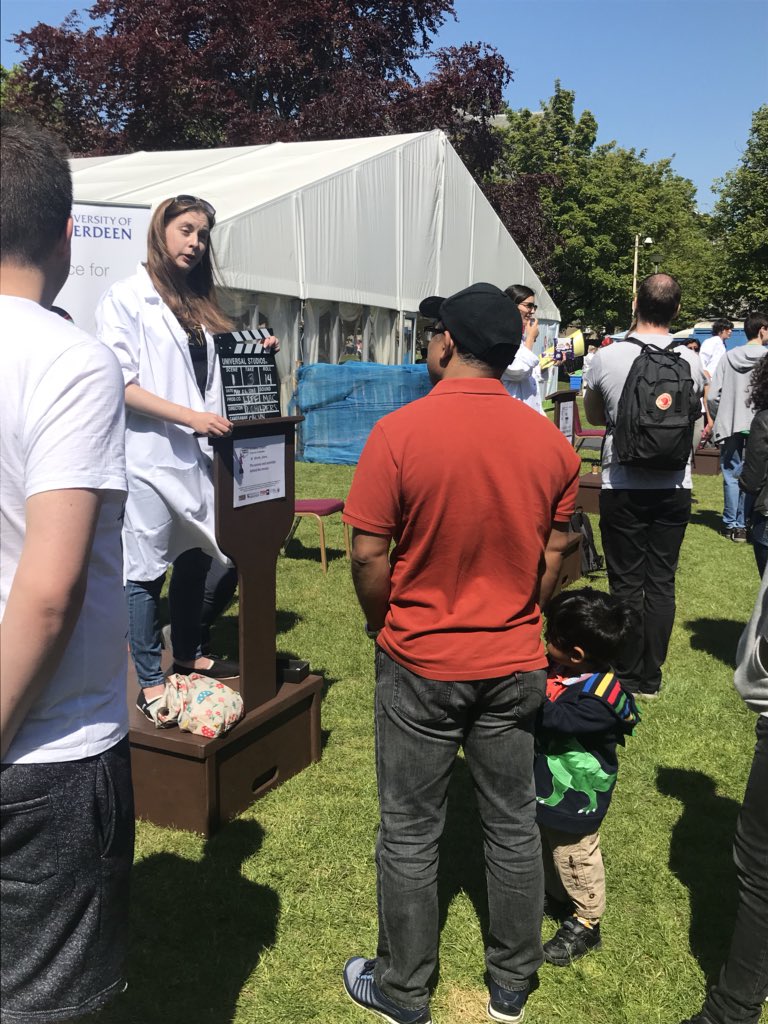
Senior Lecturer
- About
-
- Email Address
- delma.childers@abdn.ac.uk
- Telephone Number
- +44 (0)1224 437495
- Office Address
Institute of Medical Sciences
Room 4.22
- School/Department
- School of Medicine, Medical Sciences and Nutrition
Biography
Senior Lecturer in Medical Sciences, 2023 - present
Lecturer in Medical Sciences - 2019 - 2023
Research Fellow with the Aberdeen Fungal Group, 2016 - 2019
PDRA at University of Edinburgh, School of Physics and Astronomy 2015-2016
Postdoctoral Researcher with the Aberdeen Fungal Group 2013-2015
PhD (Microbiology & Immunology), University of Texas Health Science Center at San Antonio, San Antonio, Texas, USA 2006-2012
BSc (Biology), Schreiner University, Kerrville, Texas, USA 2003-2006
Memberships and Affiliations
- Internal Memberships
-
Aberdeen Fungal Group
Elected Member, University Senate (2020-2024)
Infection and Immunology Research Programme, Institute of Medical Sciences
- External Memberships
-
External Affiliations
Board of Reviewers, Microbiology journal
Elected Eukaryotic Division member, Microbiology Society, 2021-2023
Member of the Young Academy of Scotland, 2020-2025
Public Engagement
Dr. Delma Childers has been a STEM Ambassador since 2015. She has contributed to University of Aberdeen's Door's Open Day at the IMS Building and family activities at May Festival.
Dr. Childers was awarded 'Scientist of the Week' during week 7 in the 2020 Medical Research Zone for 'I'm a Scientist... Stay at Home'. She enjoyed answering student's questions about science and careers during lockdown chats hosted by the 'I'm a Scientist' team.
Dr. Childers also was among the first group of women scientists to take part in Aberdeen's inaugural Soapbox Science event in May 2018.
Latest Publications
Mannan is a context-dependent shield that modifies virulence in Nakaseomyces glabratus
VirulenceContributions to Journals: Articles- [ONLINE] DOI: https://doi.org/10.6084/m9.figshare.26150014
Is Metabolic Generalism the Breakfast of Champions for Pathogenic Candida species?
PLoS Pathogens, vol. 20, no. 12, e1012752Contributions to Journals: ArticlesImpact of secreted glucanases upon the cell surface and fitness of Candida albicans during colonisation and infection.
The Cell Surface, vol. 11, 100128Contributions to Journals: ArticlesA CO2 sensing module modulates β-1,3-glucan exposure in Candida albicans.
mBio, vol. 15, no. 2, e0189823Contributions to Journals: ArticlesGlucose-enhanced oxidative stress resistance-A protective anticipatory response that enhances the fitness of Candida albicans during systemic infection
PLoS Pathogens, vol. 19, no. 7, pp. e1011505Contributions to Journals: Articles
- Research
-
Research Overview
My interests are centered around understanding how fungi adapt to their hosts and to antifungal agents to still cause infections. The major focus of my research is to investigate how the antifungal-resistant emerging fungal pathogen, Candida glabrata (recently renamed Nakaseomyces glabratus), remodels its surface to inhibit host immune activation and control disease outcomes. This research programme uses cytometric analyses, innate immune interaction assays, and molecular approaches to establish how this important intracellular fungal pathogen is detected by host cells and evades clearance mechanisms.
Another facet of my research builds on my earlier work demonstrating that Saccharomyces cerevisiae clinical isolates are predominantly metabolic generalists that have lost glucose repression. This work is currently exploring how fungal metabolic mechanisms contribute to microbial persistence in their hosts.
My main aim is for my research to lead to a better understanding of fungal antimicrobial resistance, persistence, and pathogenesis. Understanding these facets of fungal biology is the key to improving diagnosis and treatment of serious fungal diseases.
Research Areas
Accepting PhDs
I am currently accepting PhDs in Biomedical Sciences.
Please get in touch if you would like to discuss your research ideas further.
Research Specialisms
- Microbiology
- Molecular Biology
- Mycology
Our research specialisms are based on the Higher Education Classification of Subjects (HECoS) which is HESA open data, published under the Creative Commons Attribution 4.0 International licence.
Supervision
My current supervision areas are: Biomedical Sciences.
I am currently accepting expressions of interest from students interested in pursuing a Masters by Research in Medical Sciences degree.
Previous lab members
Gabriela Fior Ribeiro, PhD
Erin Slater, MSc by Research in Medical Sciences
Lauren Marshall, MSc by Research in Medical Sciences
Eszter Denes, MSc by Research in Medical Sciences
Supervisees
- MR JONAS LUPFER
- MRS KRISTINE WRIGHT
- MISS LOGAN TOMLINSON
Funding and Grants
Carnegie Trust Research Incentives Grant, March 2020-2021
Royal Society Research Grant, October 2020-2021
Academy of Medical Sciences Springboard Round 6 Award, 2021-2023
- Teaching
-
Courses
Course Coordinator
Non-course Teaching Responsibilities
Programme Lead
MSc by Research in Medical Sciences
Other roles
Offering Honours and MSc projects
Personal Tutor
- Publications
-
Page 2 of 4 Results 11 to 20 of 32
What ‘Omics can tell us about antifungal adaptation
FEMS Yeast Research, vol. 21, no. 8, foab070Contributions to Journals: ArticlesImmune cells fold and damage fungal hyphae
PNAS, vol. 118, no. 15, e2020484118Contributions to Journals: ArticlesCOVID-19 and the Uncertain Future of PhD Research in Scotland
Non-textual Forms: Web Publications and WebsitesEpitope shaving promotes fungal immune evasion
mBio, vol. 11, no. 4, e00984-20Contributions to Journals: ArticlesNine Things Genomics Can Tell Us About Candida auris
Frontiers in Genetics, vol. 11, 351Contributions to Journals: Review articles- [ONLINE] DOI: https://doi.org/10.3389/fgene.2020.00351
- [OPEN ACCESS] http://aura.abdn.ac.uk/bitstream/2164/14371/1/fgene_11_00351.pdf
- [ONLINE] View publication in Scopus
Impact of the Environment upon the Candida albicans Cell Wall and Resultant Effects upon Immune Surveillance
The Fungal Cell Wall: An Armour and a Weapon for Human Fungal Pathogens. Latge, J. (ed.). Springer, pp. 297-330, 34 pagesChapters in Books, Reports and Conference Proceedings: ChaptersNon-canonical signalling mediates changes in fungal cell wall PAMPs that drive immune evasion
Nature Communications, vol. 10, 5315Contributions to Journals: ArticlesGrowth, Viability, and Death of Planktonic and Biofilm Sphingomonas desiccabilis in Simulated Martian Brines
Astrobiology, vol. 19, no. 1, pp. 87-98Contributions to Journals: Articles- [ONLINE] DOI: https://doi.org/10.1089/ast.2018.1840
- [OPEN ACCESS] http://aura.abdn.ac.uk/bitstream/2164/15718/1/ast.2018.1840.pdf
- [ONLINE] View publication in Scopus
Hypoxia Promotes Immune Evasion by Triggering β-glucan Masking on the Candida albicans Cell Surface via Mitochondrial and cAMP-Protein Kinase A Signaling
mBio, vol. 9, e01318-18Contributions to Journals: ArticlesLactate signalling regulates fungal β-glucan masking and immune evasion
Nature Microbiology, vol. 2, 16238Contributions to Journals: Articles

